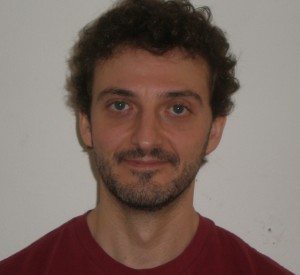

Award Winning Artistic Director Edward Elefterion has been directing and writing in New York City since 1992, and he's rapidly built a reputation for creating theatre where artist and audiences co-create in the realm of imagination. His aptly named Rabbit Hole Ensemble, which he founded in 2005, has produced many well-received plays, and his work has been raved about by The New York Times, The Village Voice, Time Out, The Daily News, and Backstage. Elefterion, the recipient of the 2008 New York Innovative Theatre Award for Outstanding Director also teaches at Hofstra University. His play "Ready for the River" runs through October 12th.
It was an honor to speak with this artist who produces such transcendental work -- and on a modest budget. Talking with Elefterion, I was reminded why we all go to the theater in the first place. Here are three questions I asked the playwright and director during our conversation:
StageBuddy: What have you learned from self-producing?
Edward Elefterion: One of the things you have to learn early is that you're not going to get attention in general. There is an over-saturation of theater in New York City, there is so much of it. If that's a problem then you shouldn't do it. If you're seeking attention, you should produce a play that has something to do with sex or naked people or use a named actor -- this is how Broadway operates. In terms of producing off-off and non-for-profit theater you have to find a reason to do the work you do do that has more to do with your interest and growth, instead of some idea of upward mobility on the theater food chain. There is such a make or break attitude in every play that someone does, there is the thought "Am I going to get on a higher rung on a ladder from this": with that thought the idea of risk, experiment and failure is absent from the experience.
How does being a professor influence your work?
One of the benefits is the opportunity to work with young people, open minds, those still with a sense of wonder, rich imagination and play with a can-do attitude. There is a give and take with my students that is a continuous cycle of exploration; we feed off one another. Sometimes you get a class that is just not gelling, and in those circumstances you learn to redirect and do what you need to do in an environment that doesn't want you to do it. I try to do work that is challenging, solid, and professional; challenging not only to the audiences but to myself and my peers. I think of my professional environment like a university: if you fail, you fail, the NY times is not going to come, who are you trying to impress, you have to work for some sense of growth in your own field. The rewards will come in some way probably that you weren't expecting. No one cares if you win an award, the next day they've forgotten about it.
What do you want the audience to walk away with after viewing a play?
I'm not a fan of the directors note, they can bias the audience; it's like saying "look at my painting -- but only stand over here." It's a work of art. It's meant to be an expression that can't be explained in words. One audience member will think its about separation, the economy or family; those different things will resonate at different frequencies. My job as a director is to unify the production, bring all the elements into some harmony, create an environment where audience and actors can collaborate.
The play isn't complete until the audience sees it. Every audience member contributes some way to what happens in the space. In this way its a different work of art because its a different audience every night.
Check out our full event listing for "Ready for the River" here: https://www.stagebuddy.com/listingdetail.php?lid=15116